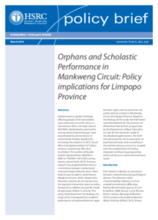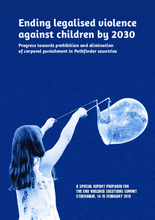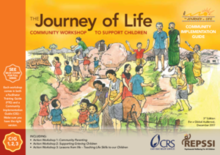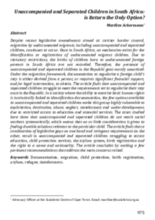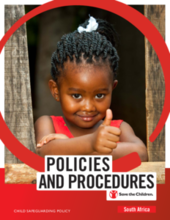childrens_living_arrangement
children_living_without_bio
Displaying 161 - 170 of 336
This policy brief draws from the findings of a study which investigated the academic performance of orphaned learners aged between eight and ten years from ten public primary schools in Mankweng Circuit of Limpopo Province, South Africa.
Eight Zimbabwean children were taken into the custody of South Africa's Department of Social Development after allegedly being smuggled into the country in a truck, according to this article from Ground Up.
Prepared for the Agenda 2030 for Children: End Violence Solutions Summit, held in Stockholm, Sweden, on 14-15 February 2018, this report tracks progress towards prohibition and elimination of corporal punishment of children in Pathfinding countries.
The series is designed for communities wishing to support children in need and their caregivers. It includes a facilitator training guide and community implementation guide, as well as guides on protecting children from trafficking and abuse.
This article examines the challenges faced by unaccompanied and separated children in South Africa.
The objective of this study was to assess the impact of ‘Parenting for Lifelong Health: Sinovuyo Teen’, a parenting programme for adolescents in low-income and middle-income countries, on abuse and parenting practices.
This article reports on a systematic review of research on residential care-leaving in South Africa, from 2003 to 2016.
This paper discusses some of the challenges facing care leavers and the development of the care-leaving debate, legislation and policy in the United Kingdom, United States and Australia. A comparison of the care-leaving arena in South Africa and the support services available to care leavers in the different countries will be presented.
A recent costing study investigating the social burden and economic impact of violence against children in South Africa found notable reductions to mental and physical health outcomes in the population if children were prevented from experiencing violence, neglect and witnessing family violence.
This document includes protocols, procedures and guidelines for anyone within Save the Children South Africa to prevent and respond to child protection concerns when they arise.

